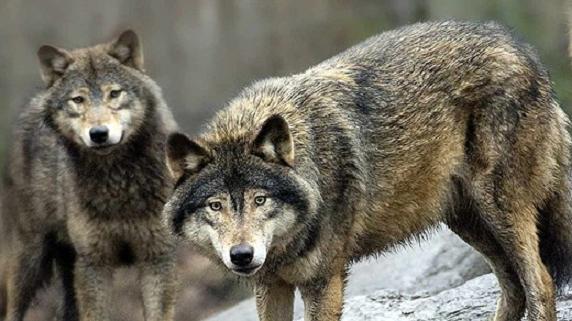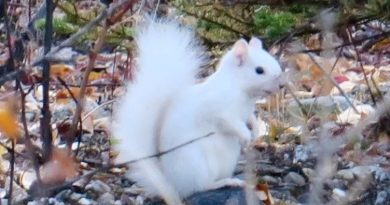Sweden's Annual Wolf Hunt Controversial

Last year was the first time it was possible to legally hunt wolves in Sweden. Thousands of eager hunters set off to kill the 27 wolves that were allowed to be culled. This year’s hunt starts on Saturday, and this time 20 wolves are up for grabs for the hunters. But it is a highly controversial issue.
Listen: {play}/media/jukebox/rs-wolfhunt.
Last year’s wolf hunt was a very swift affair. Within hours, some counties had already reached their target and at the end of the first day three quarters of the quota was filled. In the county of Dalarna, they had even shot one more wolf than allowed, because it had all gone so quickly and not everybody got the message in time that the hunt was over.This year, just like last, the government’s argument for the hunt is that the inbreeding in the Swedish wolf population has made the group – as a whole – genetically unsound. Basically, all of the approximately 200 wolves are descendents of just three wolves.
But to start introducing new wolves is seen as controversial, in particular – the argument goes – in areas where people have lost livestock to the wolves. Therefore the idea of a licenced – albeit limited – wolf hunt, is explicitly part of the government’s strategy to increase the acceptance for a future import of wolves from abroad.
If you listen to the critics, however, none of these arguments hold up.
The Swedish Carnivore Association has gathered over 15,700 signatures against the hunt on their website in just a couple of weeks. They claim that the wolf population in Sweden is too small and too vulnerable to cope with the hunt.
Meanwhile, the atmosphere in the hunting community is one of frustration. They are upset that the quota this year is less than last year, even though – as they claim – a record number of wolves have been born in the country over the past 12 months.
Perhaps to placate this anger, the hunters will this year be allowed to go out already the day before the actual hunt starts -that is tomorrow- in order to track the wolves. Because the packs move over such a large area, often where there are no roads, it takes time to track them down.
But apart from that, there has not been much change compared to last year. Per Risberg, desk officer at the Environment Protection Agency admits that they cannot guarantee that the wolves that are shot are those who are genetically “unsound”, but what they have done is to locate a few of the really – from a genetic perspective – valuable wolves, and banned wolfhunt in those areas.
So what about topping up the wolf population with some new blood? The government has said that 20 wolves, among others from Finland and Russia, will be introduced before 2014. But according to Per Risberg, there is still a bit to go before that becomes reality.



